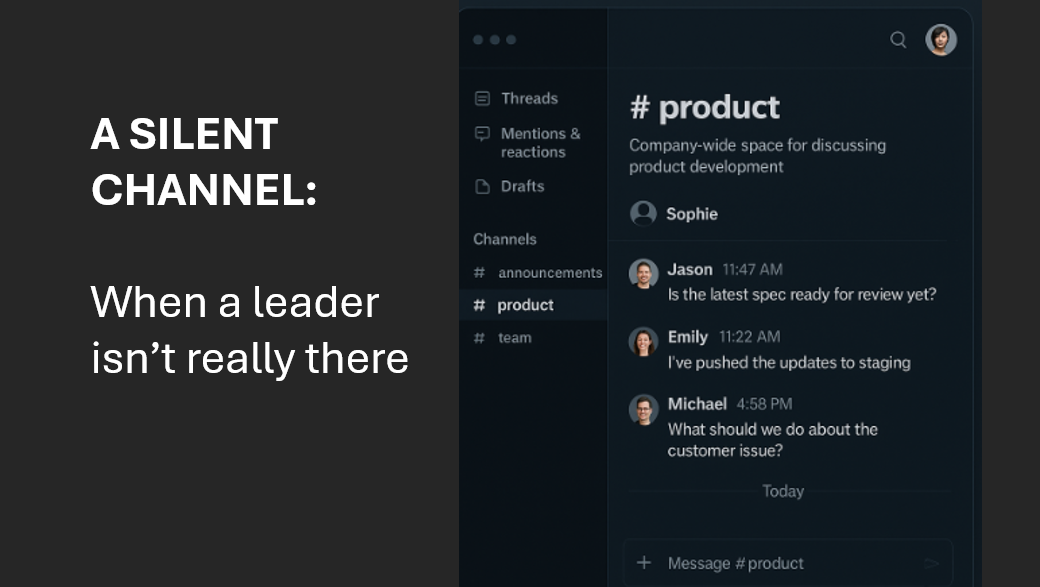In a compelling conversation with Performance Coach, Keith Antoine, Glenn Wallis and Nejmi Alexander, co-hosts of the Impactful Conversations podcast, delve into what it takes to build sustainable performance in organisations.
They discuss his straightforward approach to performance that goes beyond just getting results.
Performance Is More Than Just Getting Things Done
Keith starts with a refreshingly simple definition of performance: “It’s that ability to get things done, to get what needs to be done in the way it needs to be done, by when it needs to be done. If you keep things simple, things roll along nicely.”
However, he quickly points out that this only creates temporary performance.
For sustainable success, organisations need to pair performance with development. As Keith explains, “You cannot have a sustained performance culture without a development culture.”
He challenges leaders with a powerful question: On a scale of 1-10, how consistently are you working to ensure that, when you step away, the next person can do a significantly better job than you’re doing today?
Few give themselves high marks on this question, yet many claim to take development seriously.
The Real Test of Leadership
Glenn illustrates this point with sports examples, referencing the aftermath of Sir Alex Ferguson leaving Manchester United and Clive Woodward departing from England rugby. Both were celebrated as brilliant leaders, but their organisations struggled after they left.
“If it all hangs on one individual, if it all hangs on the leader to make it happen then, for me, that’s just not sustainable,” Keith explains. True success, he argues, is when performance continues and even improves after you’re gone.
The Conversation Skills Gap in Organisations
When discussing performance reviews, Keith highlights a critical insight that many organisations miss: “To implement any process, at some point it’s going to come down to a conversation.”
He observes that, while companies invest heavily in creating perfect performance review processes (which might be “10 out of 10”), the conversation skills of the people implementing these processes are often only “3 out of 10.” The result? The effectiveness of even the best process is limited by the conversational capability of those using it.
“Would you sooner take a 10 out of 10 process with 3 out of 10 skill, or would you sooner take maybe a 6 out of 10 process with 6 out of 10 skills?” Keith asks. His preference is clear, especially since improved conversation skills benefit every aspect of leadership, not just performance reviews.
Challenging Conversations Shouldn’t Be ‘Challenging’
Keith questions why we frame certain conversations as ‘challenging’ in the first place. “If the intention is to help people to perform and improve, then why is that ever a bad thing?” he asks.
Part of the problem, as Glenn points out, is that performance conversations are often treated as infrequent events rather than ongoing dialogues. Keith compares this to an athlete saying, “The Olympics are next week, what do I have to do?” when they should have been preparing for years.
“When people leave it and build it into ‘now I’ve got to have a challenging conversation,’ that just tells me that conversations that should have happened before haven’t,” Keith explains.
A Simple Framework for Effective Performance Conversations
Rather than extensive preparation that creates rigid expectations, Keith offers a simple three-part framework for preparing:
- Be clear about the reason for the conversation – State it in a simple sentence: “You delivered this piece of work last week, and we need to have a conversation about it.”
- Identify what precipitated the reason – “We’ve received feedback that this did not meet the standard that was expected.”
- Clarify the impact – “Therefore, there’s an element of rework or reputational damage that needs to be addressed.”
After this setup, Keith emphasises the importance of being present and adaptable during the actual conversation, rather than sticking to a script.
The Key Skills: Attention and Generating Thought
When asked about the core skills for effective conversations, Keith highlights two specifically:
- Paying attention – “The ability to pay attention requires us to get out of our own heads and focus on who we’re talking to.” Leaders need to spot the signals others give off and use those to guide the conversation.
- Generating thought – “Make your people work harder in their heads.” Keith offers a simple test: How many times during your conversation did the other person pause significantly before responding? If answers come too quickly, they might be just retrieving information, not truly thinking.
“When you’re having an impactful conversation, if the other person isn’t pausing big time, at least on a few occasions, you’re not making them do any work,” Keith explains.
The Skill-Based Approach to Improvement
Keith concludes with a powerful insight: Effective conversations aren’t about understanding models or theories – they’re about developing skills. “Once you appreciate it as a skill to be developed, you can break it down, you can measure it, you can practice it, you can repeat it, you can learn and you can make it better.”
By positioning conversation as a skill rather than an intellectual construct, it becomes more accessible. While not everyone will become exceptional, everyone can improve – and that improvement raises the tide on performance across the organisation.
A reminder; in the latest episode of our podcast, ‘Impactful Conversations’, we explore the topic of this article in more detail and give you actionable takeaways you can implement to enhance your leadership skills. You can listen here or wherever you get your podcasts.
Exigence provides a full suite of evidence-based business coaching solutions, driven by a desire to help individuals and teams to achieve their performance potential. Find out more here or contact us to talk through how we can support you.





